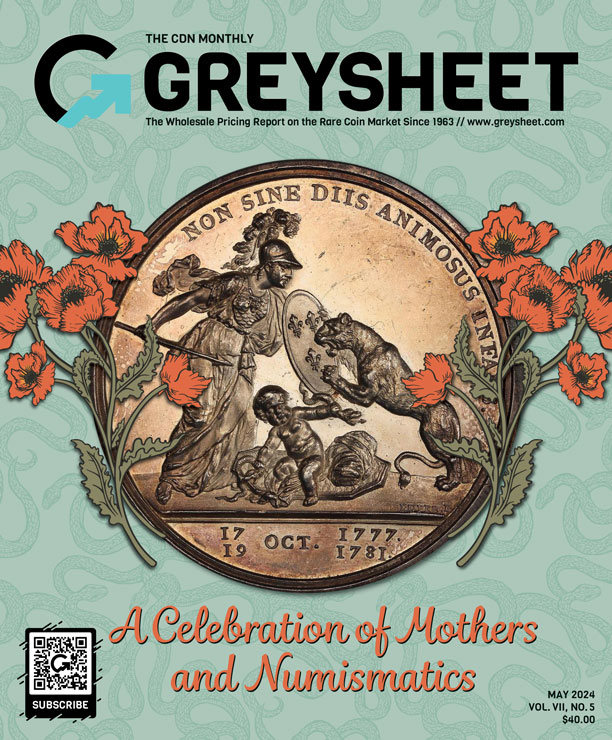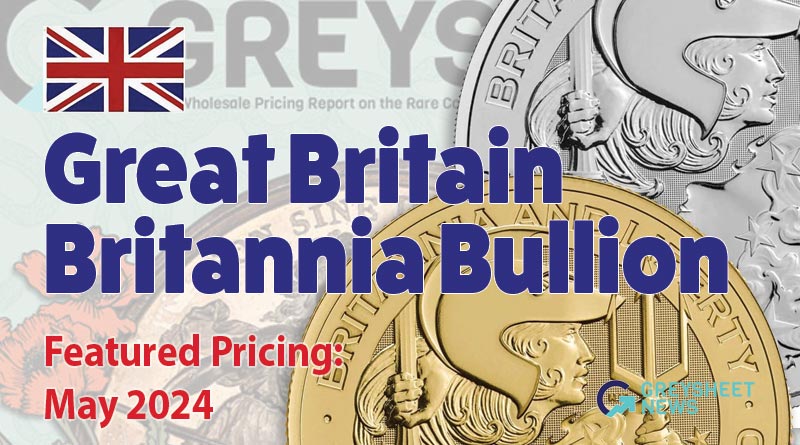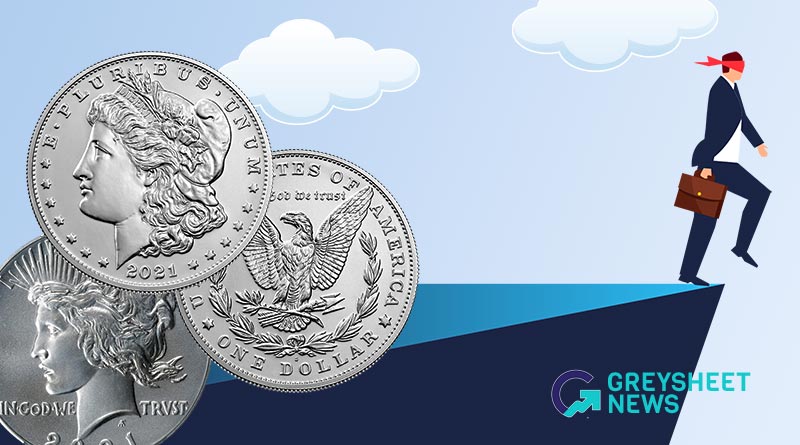Bluesheet: BUYERS WITH U.S. DOLLARS BENEFIT FROM WORLD-WIDE CASH UNCERTAINTY
Back in October, we wrote an article for the Monthly Supplement titled “Is Cash the New 4-Letter Word” in which we discussed the global push to decrease the use of cash in everyday transactions and the possible long-term impact of such a push on the rare coin market. A number of interesting things have occurred in the meantime in both the currency markets and currency policy to warrant further discussion on this important matter.
First, the results of the presidential election caused the U.S. dollar to soar, pushing the dollar index to 14-year highs, crushing many emerging market currencies in the process. As of this writing, the Euro has fallen against the dollar for a record-setting tenth day in a row, something truly unprecedented in the life of the 16-year-old common currency. The Chinese yuan, a tightly-controlled currency due to its importance in global trade, has approached the 7-to-1 level versus the dollar, an occurrence not seen since April 2008.
Even more dramatically and falling under the category of policy decisions, the Indian government-a massive consumer of gold-made a snap decision to demonetize the country’s two largest denomination bank notes in circulation on November 8th. This huge edict was decreed in the name of counteracting the forces of corruption, counterfeits, and the black economy. Additionally, all banks in the country were closed the following day to prepare, and from then on all citizens who possessed the notes had to visit a bank branch or post office to have the notes converted. By all accounts the transition has been a disaster because of an under-supply of replacement notes. Furthermore, by demonetizing the two largest notes, the Indian government wiped out 88% of the total value of notes in circulation. In an economy that is almost entirely dependent on cash, commerce has ground to a halt. Unsurprisingly, other major currencies such as the U.S. dollar immediately began to trade for huge premiums on the street, and gold coins denominated in rupees have skyrocketed. Needless to say, confidence in the currency is crushed and the Modi government is in danger of losing credibility as citizens don’t have the ability to pay for basics like groceries.
How do these global events relate to the domestic market? For collectors and dealers, it makes numismatic purchases in Europe and Asia more attractive, as collectibles prices are often slower to catch up with sharp moves in exchange rates. We saw this in action during the summer in England. After the Pound plummeted as a result of the Brexit vote collectibles auctions were much stronger than expected as foreign buyers took advantage of the better rate.
It also speaks to preparation. With the rare coin business more cash-based than others, it is important to be aware of policy affecting cash around the world, as elements can be taken and applied domestically. Organizations such as ICTA can be helpful in such instances. Circumstances such as these prove, time and time again, that people flock to tangible assets such as coins and precious metals when faith in paper wavers.

Download the Greysheet app for access to pricing, news, events and your subscriptions.
Subscribe Now.

Subscribe to Monthly Greysheet for the industry's most respected pricing and to read more articles just like this.
Source: CDN Publishing










